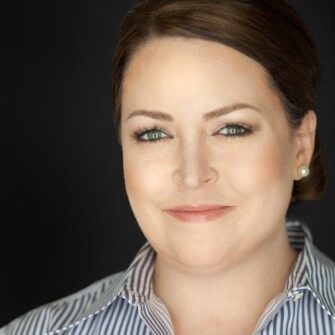Financial Planning in Your 20s: The Essential Checklist

Your early 20s are a time for growth: new friends, new jobs, new towns. But with so many firsts, mistakes are natural.
Financial mistakes, however, can be costly.
Student loans. Credit card debt. The 20s can be a rocky road to financial health. That’s why financial planning as a young adult can equip you to handle life’s financial twists and turns. You don’t need to know everything, but the essentials will provide a solid foundation.
Here are eight steps to take now.
No. 1: Hone financial decision-making
Humans are often impulsive making decisions based on emotion, often without thinking them through. Add in the fact that American culture is consumeristic which can have negative implications for our finances. Learning how to follow a process can aid you in making smart financial choices. A financial literacy lesson is learning how to live within your means, avoiding spending more than what you earn. Essentially, income should cover expenses. If it doesn’t, then stop overspending and reevaluate your budget.
Take a pause before any large purchase. Decide if it’s an expense that will bring value in the long term. No? Consider setting aside some money for a better purchase or simply saving it for the future.
No. 2: Secure an income and Create an Emergency Fund
Your 20s are a time to find yourself, do meaningful things, and earn a living—emphasis on earning a living. Your ability to spend money depends on your income, and your income will determine your quality of life.
It is important to find and secure an income through traditional employment or self-employment and then it is wise to have a backup plan to protect your income.
A good backup plan can include creating an emergency fund. An emergency fund is money set aside for emergencies to bridge the gap during a period without income or in the event of an unexpected cost.
Many young people struggle to start saving because the future seems distant. In reality, the best way to secure a financial future is to save as early as possible.
Setting money aside in an emergency fund will not only reap the benefits of compound interest but also create a safety net in case of unexpected expenses.
Here are the types of unexpected costs that you should prepare for:
- Unemployment
- Medical, dental, or vision expenses
- Car repair
- Home repair
- Electronics replacement
- Taxes
Without savings, you may face serious financial trouble when these unexpected costs arise. It’s best to prepare and avoid a higher-cost alternative, such as using credit or taking out a loan for medical expenses.
Aim to save enough money to cover three to six months’ worth of expenses. An emergency fund is useful in the event of an unforeseen cost. Whether it’s an emergency fund or a traditional savings account — start with a small amount and gradually strengthen your safety net.
No. 3: Create a budget
A lot of 20-somethings view budgeting as having enough money to make ends meet. This means not overdrawing their account, nights out, and on-time rent payments. As they get older, they’ll realize that money needs to work hard.
“Developing a budget that you can follow” is crucial to building a financial foundation, says Haley Tolitsky, a CFP with Cooke Capital.
A budget is a financial plan based on your income and expenses. It is flexible and allows prioritization at different stages of life. Remember, your income should exceed your expenses — including paying off debt, contributing to savings, and investing for the future. If it doesn’t, then it is important to make adjustments to your budget by cutting out the nonessential spending.
Envelope budget
The envelope budgeting method tracks income and expense categories. Place cash in envelopes and only spend from the designated category each month.
80/20
The 80/20 budget divides income into two categories: savings and everything else. It prioritizes saving and allows freedom to spend the remainder however you like.
50/30/20
The 50/30/20 budget divides income into three categories: needs, wants, and savings, respectively. It focuses on broad expense categories instead of tracking pennies.
Once you choose a budget, the process is typically the same.
“Determine your monthly income and essential — rent, utilities, groceries, phone bill, etc. — versus non-essential — dining out, entertainment, shopping, etc. — expenses,” Tolitsky says. “Set a goal to save a specific dollar amount each month in a separate high-yield savings account for your emergency fund and keep contributing until you reach 3-6 months of living expenses.”
A budget will ensure you don’t fall back on negative habits. Pick one and give it a try.
No. 4: Set savings goals
Savings goals create a path to the financial future you want, whether you save for a short-term goal, like vacation, or a long-term goal, like retirement. It is recommended to spend your 20s creating several savings goals for your financial future.
Setting and achieving financial goals takes patience. So trust the process and time.
One of the easiest ways to save is to pay yourself first. This means prioritizing savings in your budget. To take the human element out of the equation, set up an automatic deposit.
“As soon as you get paid, transfer a portion of your income to your savings, investment, and/or retirement accounts, depending on your financial goal,” says Brianne Soscia, CFP with The Wealth Consulting Group.
Another option is to focus on your retirement plan. If you have an employer retirement plan, contribute enough to max out any employer match program.
“These contributions will come out of your paycheck automatically, ensuring that you pay yourself first,” Soscia says.
No. 5: Pay off debt
Debt is pervasive. It can follow you into your 30s, 40s, and beyond.
Debt actively reduces your overall net worth. It can also negatively impact your credit score, like high credit card balances and missed payments. In fact, maxed-out credit cards are one of the worst debt burdens to carry — due to interest and fees. Credit card debt is a cycle of high balances and minimum payments. Misuse of credit can significantly lower your credit score and it can take years to fix.
There’s a reason why credit card companies inundate young people with credit card offers. Twenty-somethings may be easily wooed by promises of low fees, introductory rates, and other perks. A good rule of thumb is to use credit only when you can pay it off in full each month. Already have credit card debt racked up? Create an aggressive plan to pay it off ASAP.
Most life milestones require a credit check. Buying a car? Credit check. Buying a house? Credit check.
Don’t let debt disrupt your financial success. Spend your 20s reigning in your debt. By paying it off, you’ll gain financial freedom — and even better, peace of mind.
List all of your debts in one place. Differentiate between high-priority debt, like credit cards, and low-priority debt, like student loans. Create a repayment plan to tackle your debt head on. There are two popular debt repayment strategies:
Snowball method
The snowball method pays off the debt in the order of smallest to largest amount. The borrower gains momentum by paying off each balance then rolling that payment into the next smallest balance, and so on.
Debt avalanche method
The debt avalanche method pays off the debt in order of the highest-interest to lowest-interest debt. By prioritizing high-interest debt, the borrower will save money on interest payments.
One of the issues borrowers face is a lack of professional advice on how to manage student loans.
“If a borrower has federal student loans, they have nine different options to select from,” says Fred Amrein, CEO and founder of PayForED. “If they get married and they both have federal loans they could have 126 option combinations. A simple change could be worth thousands of dollars a year in cash flow.”
Before leaving school, create a plan of action to repay student loans. Determine if and for how long your loans qualify for a grace period. Once you start repayment, it is recommended to pay at least the minimum due, and make additional payments as your budget allows.
Are loan payments too costly? There are several other ways to work with the federal government or a private lender before missing a payment. Consider an alternative repayment plan, consolidation, refinancing, or deferment.
No. 6: Start investing
Investing is key to building wealth. And time is on your side in your 20s.
“Time being on your side is key when it comes to building your wealth in your 20s,” says Janine Rogan, CPA and CEO of The Wealth Building Academy.
Why? That’s the magic of compound interest. Compound interest is interest earned on interest. Basically, it’s the reason why investments earn more money over time.
“Starting to invest and earning returns on small amounts will compound [throughout] your life,” Rogan says.
Investing all depends on timing and your unique financial situation. Consider consulting a financial professional for comprehensive investment advice.
No. 7: Negotiate salary
The best way to increase your income in your 20s comes from changing jobs and negotiating a higher salary. Yes, salary negotiations can be uncomfortable, but not doing so could leave money on the table.
“Even leaving as little as $5,000 on the table in your first salary negotiation can have a ripple effect that has a net impact of leaving six to seven figures in money on the table throughout your career,” says Lauren Hasson, founder of DevelopHer.
So how do you negotiate a salary? Follow these tips.
- Do your research on your industry, role, and qualifications. What is the average salary expectation for someone in your position?
- Create a compelling case. Why do you deserve greater compensation? How have you directly impacted the business?
- Be prepared to answer difficult questions. How are you advocating for yourself and your contributions?
- Consider the whole package. Is a salary increase the only compensation you’re interested in? What about benefits, including time off or an annual bonus?
There are several perks to successfully negotiating salary and receiving a higher compensation. You will feel more confident. You will have greater workplace satisfaction. And most importantly, you will positively impact your lifetime earnings.
No. 8: Take advantage of employer benefits
Salary is important. But other factors play a role in your overall take-home pay. Benefits, for example, are a huge incentive. So make sure to learn about your employer’s benefits package and take full advantage of it.
“This can be confusing to navigate at first, but most employers provide education and resources around this – you need to spend the time to use them and learn your benefits,” says Matt Elliott, CFP at Pulse Financial Planning. “Unique benefits are becoming more prominent to attract young employees, especially in the tech space, and every plan is different so check with your HR department and co-workers about your specific benefits package.”
There are two common employer benefits to consider:
Health benefits plan
An employer-sponsored health benefits plan will keep you healthy and save on out-of-pocket costs on coverage. “If you’re eligible for an HSA [health savings account] through your employer, this is another top program to take advantage of,” Elliott says. It allows employees to fund health costs with pretax dollars.
There are all kinds of insurance to protect policyholders from financial losses. Your monthly contribution is combined and paid into a pool. If one person experiences adversity — injury, illness, property damage, or death — the pool covers their financial expenses. Without insurance, you may have to drain your savings or rely on high-interest credit to cover expenses.
Retirement plan
An employer-sponsored retirement plan is an easy way to start investing in the future. And if the company offers a 401(k), match take it — that’s free money.
People in their 20s who don’t fund either a company 401(k) or an IRA are missing out.
Remember, time is on your side. Contributing to a retirement fund in your 20s makes the most of compound interest. Contributions made early on will grow tremendously by the time you turn 66, the age to receive full retirement benefits.
Not only are people in their 20s missing out on the magic of compound interest, but they may be forgoing company money. That’s right. Many companies offer matching retirement contributions up to a certain percentage -- typically about 6%. Employees who choose to open a 401(k) and contribute a designated amount can receive a bonus contribution from their company. That’s free money! Over a lifetime it could mean having tens or even hundreds of thousands of extra dollars.
Financial professionals recommend contributing at least 15% of your income to a retirement fund. If your employer offers a matching contribution, take advantage of the full benefit!
The bottom line
The early 20s are the right time to create a financial plan. Take action with our essential checklist to aid your journey to financial health.

Matt Elliott is a CFP based in Rochester, MN, serving clients locally in-person and virtually nationwide. Elliott founded Pulse Financial Planning, which provides financial planning and investment management to help individuals and healthcare professionals organize, invest, and protect their assets.

Lauren Hasson founded DevelopHer to help fellow female professionals advance their careers, stand-out in their field, and negotiate for the salaries they deserve. Her work with DevelopHer has been featured in the international IEEE Women in Engineering Magazine; she has been hired by top companies like Google, Dell, Intuit, Armor, and more to train and inspire their women; she also received the Women in IT Awards Silicon Valley “Diversity Initiative of the Year” Award.

Janine Rogan is a chartered professional accountant and the founder and CEO of The Wealth Building Academy, a financial literacy company focused on educating millennials to put their best financial foot forward. Based in Calgary, AB, she has spent the past 10 years sharing her financial acumen with thousands of individuals through local workshops and international speaking engagements.

Brianne Soscia is a certified financial planner, financial advisor, and founder of the Financial Yogi. She currently holds her Series 6, 7, and 63 licenses through LPL Financial, and Series 66 license through both Wealth Consulting Group and LPL Financial, as well as her life and health insurance licenses. She specializes in working with individuals, families, and business owners in the areas of retirement planning, investment management, asset protection, and college savings.
Please note the below article contains links to external sites outside of OppU and Opportunity Financial, LLC. These sources, while vetted, are not affiliated with OppU. If you click on any of the links you will be sent to an external site with different terms and conditions that may differ from OppU’s policies. We recommend you do your own research before engaging in any products or services listed below. OppU is not a subject matter expert, nor does it assume responsibility if you decide to engage with any of these products or services.

